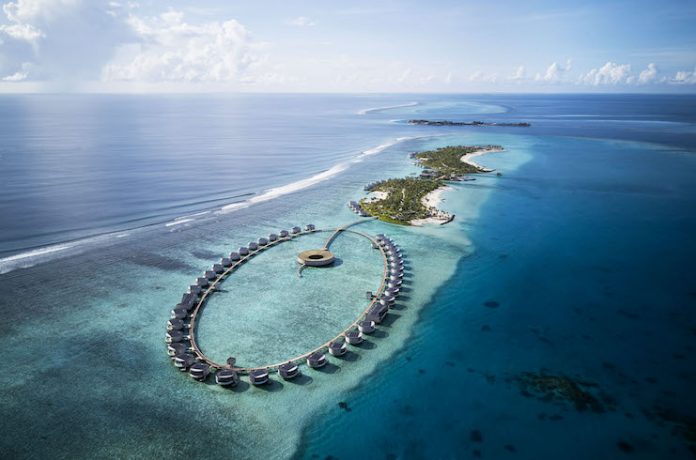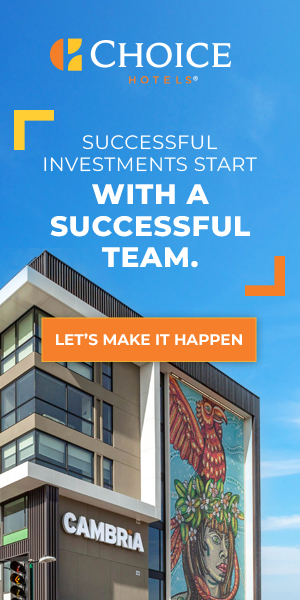On the eve of the Americas Lodging Investment Summit (ALIS) in Los Angeles, Marriott International announced a strong year of rooms growth and signings in 2021. The company also provided insight into trends it sees impacting global hospitality development. These trends helped drive Marriott’s 2021 development progress and are expected to propel the company’s growth over the next several years.
At the end of 2021, Marriott’s system consisted of nearly 8,000 properties and roughly 1.48 million rooms in 139 countries and territories. At year-end, the company had roughly 485,000 rooms in its pipeline. The company signed 599 agreements during 2021 representing approximately 92,000 rooms of which slightly more than half are located outside of the United States and Canada. Rooms falling out of the pipeline remain at low levels, despite challenges brought on by the pandemic. During 2021, Marriott added more than 86,000 rooms on a gross basis, growing the system 3.9 percent, including deletions of 2.1 percent. The deletion rate was 1.2 percent excluding the exit of 88 Service Properties Trust select-service hotels.
“Marriott has the benefit of sitting at the intersection of information and insights from a global community of developers, properties, owners, and franchisees, as well as the more than 160 million members of our Marriott Bonvoy travel program,” said Stephanie Linnartz, president, Marriott International. “Our analysis of the prevalent trends in global development is particularly instructive as we continue to recover from this global pandemic. We have been focused on working closely with our valued community of owners and franchisees throughout these unprecedented times. We are pleased with our strong 2021 development results and look forward to continuing to drive value for our owners and franchisees throughout the recovery and beyond with our quality brands, our comprehensive business support systems, and industry-leading loyalty platform.”
Marriott is poised to meet traveler demand with its portfolio of seven luxury brands across 476 hotels spanning 69 countries and territories. In 2021, Marriott International signed 40 luxury hotel deals, representing over 6,000 rooms, and grew its portfolio of luxury hotel rooms by 4.8 percent net, with additions in locations around the globe including Philadelphia (W Hotels), Nashville (W Hotels), Charlotte (JW Marriott), Bermuda (St. Regis), Paris (Bulgari), Rome (W Hotels), Maldives (The Ritz-Carlton), Budapest (The Luxury Collection), and Reykjavik (EDITION). The company continues to expand its luxury footprint with nearly 50,000 rooms in its pipeline. Marriott anticipates debuting more than 30 luxury hotels in 2022 in destinations from Mexico (The St. Regis Kanai Resort) and Portugal (W Algarve) to Australia (The Ritz-Carlton, Melbourne) and South Korea (JW Marriott Jeju Resort & Spa).
Leisure Travel
Leisure demand has led the travel recovery, a trend that is expected to continue into 2022, as travelers continue to mix remote work and vacation time. Leisure transient global room nights were the first to recover to 2019 pre-pandemic levels in the second quarter of 2021. For some time prior to the COVID-19 pandemic, leisure travel had been growing at a faster pace than business travel. Marriott’s resort network includes over 600 properties in beach, mountain, and desert locations around the world that have seen high demand and have demonstrated high average daily rates.
All-Inclusive
Consumer interest in the all-inclusive resort segment continues to increase. The company intends to capitalize in this area, leveraging its brands to drive growth in this segment. Currently, Marriott International’s all-inclusive portfolio spans 28 properties, representing over 8,000 rooms in locations across the Caribbean, Mexico, and Central America. In 2021, Marriott International signed 22 agreements for all-inclusive resorts, marking a company record, including 20 all-inclusive resorts under its Autograph Collection Hotels brand and the first Marriott branded all-inclusive resort agreement in North Africa.
“Marriott’s all-inclusive platform is energizing the segment and providing Marriott Bonvoy members, owners, and franchisees access to our strong brands,” said Carlton Ervin, global development officer, international, Marriott International. “While our initial all-inclusive growth has been focused in the Caribbean and Latin America, we see tremendous opportunity to expand our all-inclusive platform into additional markets, including the Mediterranean and the Middle East.”
Extended Stay
The extended-stay segment has always been attractive to leisure travelers and has become even more popular with the increase in remote work and the blending of business and leisure travel. Marriott International introduced its extended-stay Residence Inn brand almost 40 years ago. In 2021, extended stay accounted for 37 percent of the company’s rooms signings in the United States and Canada. Marriott Bonvoy’s extended-stay brands—Element Hotels, Residence Inn by Marriott, and TownePlace Suites by Marriott—include more than 1,400 hotels, offering stays from a few nights to a few weeks. Expected openings in 2022 include Element City Center Doha, Residence Inn by Marriott The Hague City Center, and TownePlace Suites Cape Canaveral Cocoa Beach.
Marriott’s extended-stay portfolio offers modern design, programming, food and beverage offerings, a room mix for leisure and business travel, and an operating model. At ALIS, Marriott will be showcasing Element Hotels, Residence Inn by Marriott, and TownePlace Suites by Marriott through its “Longer Stay Lounge,” a space where investors, owners, and operators can experience the brand programming and designs while networking.
“The extended-stay segment has been extremely resilient over the past few years and guest and owner demand continues to grow, driven in some measure by the rise in multi-purpose travel,” said Noah Silverman, global development officer, United States and Canada, Marriott International. “We are excited for continued momentum around extended stay and to use our presence at ALIS to communicate the strength and possibilities of Marriott’s longer stay category and the impressive value it brings to owners.”
Conversions
Conversions are a driver of rooms growth, but they have been meaningful during more disruptive times. Marriott added more than 18,000 conversion rooms in 2021, accounting for 21 percent of overall openings. In addition, conversions accounted for 27 percent of rooms signings in 2021. Interest in conversions into Marriott brands remain high, led by the company’s portfolio of collection brands, including Autograph Collection Hotels, The Luxury Collection, and the Tribute Portfolio, which has grown its footprint of open and pipeline hotels by nearly four times in the past five years. In addition, Delta Hotels by Marriott, the company’s full-service conversion brand, represented 9 percent of signed conversion deals in 2021. Expected conversion additions in 2022 include the JW Marriott Hotel São Paulo in Brazil, The Brix, Autograph Collection in Trinidad and Tobago, The Serangoon House, Singapore, A Tribute Portfolio Hotel, and a Delta Hotels by Marriott City Center Doha in Qatar.
International Markets
In 2021, the company signed 256 agreements representing nearly 51,000 rooms in international locations outside the United States and Canada. With the company growing its international footprint, Marriott continues to enter new markets. In 2021, the company expanded into Antigua and Barbuda, Belize, Bermuda, Grenada, St. Lucia, and Turks & Caicos. In 2022, the company expects to plant its flag in Albania and Honduras.
Select Service
Development activity for brands within the select-service space remains another key driver of growth, especially internationally. Marriott International’s select-service brands include Courtyard by Marriott, Fairfield by Marriott, Four Points by Sheraton, Aloft Hotels, and Moxy Hotels. In 2021, the company opened 107 select-service hotels representing nearly 19,000 rooms in 29 countries across its international regions. In China, expected openings in 2022 include Element Yangjiang Hailing Island and Moxy Suzhou City Center. In 2021, Fairfield by Marriott continued to make its mark in Japan with the “Michi-no-eki” project, bringing six more hotels to key locations across four prefectures. The company also launched its new Fairfield prototype in Europe and the Middle East.
Branded Residential
Marriott’s branded residential business increased in 2021 as evolving lifestyle changes have sparked interest in on-demand amenities and services. Marriott has nearly 190 projects open or in development worldwide across 14 of the company’s brands. Marriott’s branded residential offerings include a standalone residence model with similar services offered at the company’s hotel properties, but without a co-located hotel. In 2021, Marriott signed its first standalone residences for the EDITION brand in Miami and for the Autograph Collection Hotels brand in London. The company operates 14 standalone residences with 16 in the pipeline. Overall, the branded residential sector continues to grow internationally, with nearly 80 percent of Marriott’s upcoming projects located outside of the United States and Canada. The company expects to debut 14 residential projects in 2022 in destinations from New York City (The Ritz-Carlton Residences, New York, NoMad) and Algarve (W Residences Algarve) to Belgrade (The Residences at The St. Regis Belgrade).













